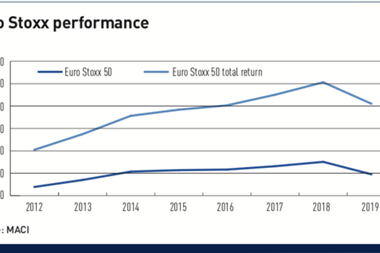The credit strength of asset managers in the UK and the remaining European Union countries would not “materially” weaken in the event of the UK leaving the bloc without a withdrawal agreement, according to Moody’s.
The credit rating agency said the asset managers would face some pressures in the event of a no-deal Brexit – such as uncertainty about the future status of EU employees working in the UK and vice versa – but that it considered these manageable.
Temporary measures put in place by UK and EU regulators would minimise the operational disruption of a no-deal outcome, and asset managers’ own efforts to prepare for such a situation would also help protect their credit profiles, Moody’s added.
The rating agency highlighted that UK-based asset managers had focussed in particular on creating or expanding entities regulated in the EU under MiFID legislation to prepare for the loss of EU “passporting” rights if the UK left the EU without a deal.
This exercise had entailed costs so far contained at estimated 0.1%-0.6% of operating expenses, according to Moody’s.
In February, the European Securities and Markets Authority and the UK’s Financial Conduct Authority (FCA) announced an agreement to preserve delegation rules in the event of a no-deal Brexit.
These rules allow UK asset managers to create funds that are domiciled and regulated in the European Economic Area (EEA) – which includes EU countries – and market them to clients in the EEA or EU while continuing to manage them from the UK via an outsourcing arrangement.
According to Moody’s, about 84% of the assets that UK-based firms manage on behalf of non-UK EEA clients are in funds managed via delegation.
In addition, the UK has put in place a “special permissions regime” to allow asset managers based in the EU or EEA to continue operating in the UK for up to three years after a potential no-deal Brexit.
Last month the FCA published final rules aimed at providing certain about the financial regime firms would be operating under even in the event of a no-deal Brexit.
After an extension of the original deadline, the UK is scheduled to leave the EU on Friday, 12 April. Prime minister Theresa May has yet to secure a majority in parliament for her withdrawal agreement and the outcome of talks with the Labour party about a compromise is uncertain.
May is about to visit several European capitals in an attempt to get agreement on postponing the date at which the UK is scheduled to leave the EU. Tomorrow she will meet Emmanuel Macron in Paris and Angela Merkel in Berlin followed on Wednesday by an emergency summit of EU leaders in Brussels.








